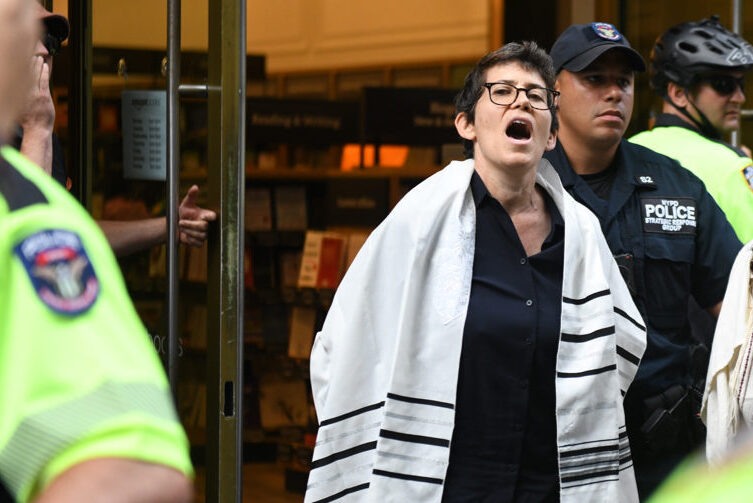We organize, train, and support more than 2,300 rabbis and cantors across 47 states and 5 Canadian provinces who are chaverim (members) of T’ruah.
5,000+ people, including clergy, lawmakers, students, Jewish and non-Jewish social justice leaders, have learned about antisemitism from A Very Brief Guide to Antisemitism.
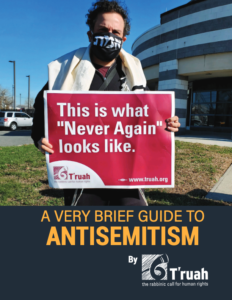
As members of local coalitions, we helped pass groundbreaking legislation ending long-term solitary confinement in New Jersey and New York.
80 rabbis and Jewish leaders have learned about the history of racial violence in the U.S. and about how the legacy of slavery lives on in the prison system through delegations to the Legacy Museum and the National Memorial for Peace and Justice in Montgomery, Alabama.
T’ruah’s Jewish community Handbook for Jewish Communities Fighting Mass Incarceration has become the go-to text for Jewish communities addressing police violence, sentencing, prison conditions, and reentry.
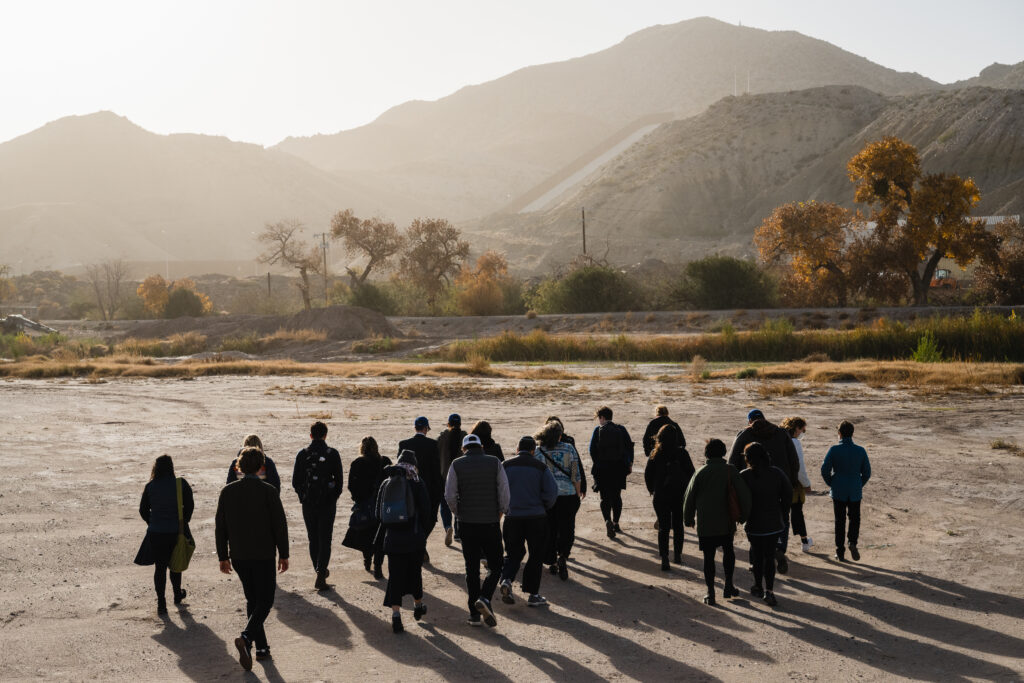
115+ rabbis and cantors have visited the southern border of the U.S. to witness the human rights challenges there for asylum seekers, and have returned home to engage their own communities in protecting refugees, immigrants, and asylum seekers. Most of these delegations have taken place as a partnership between T’ruah and HIAS.
From 2016-2020, 70+ synagogues joined our Mikdash sanctuary network or hosted refugees.
In the lead up to the 2020 election, we trained more than 200 Jewish clergy as poll watchers and movement chaplains.
Over 100 rabbis and cantors have participated in our Communities of Practice, which offer a community of colleagues working on a shared concern or issue, including: antisemitism, racism, Israel/Palestine, working in a red state, and more.
Over 100 Jewish clergy and community leaders have visited with the Coalition of Immokalee Workers (CIW) in southern Florida, and in partnership with CIW, they have energized their communities to persuade major retailers to join the Fair Food Program, which protects workers from trafficking and other abuses.
T’ruah rabbis are also building power on a local level in three “clusters” — in New York City, Westchester County, and Boston.
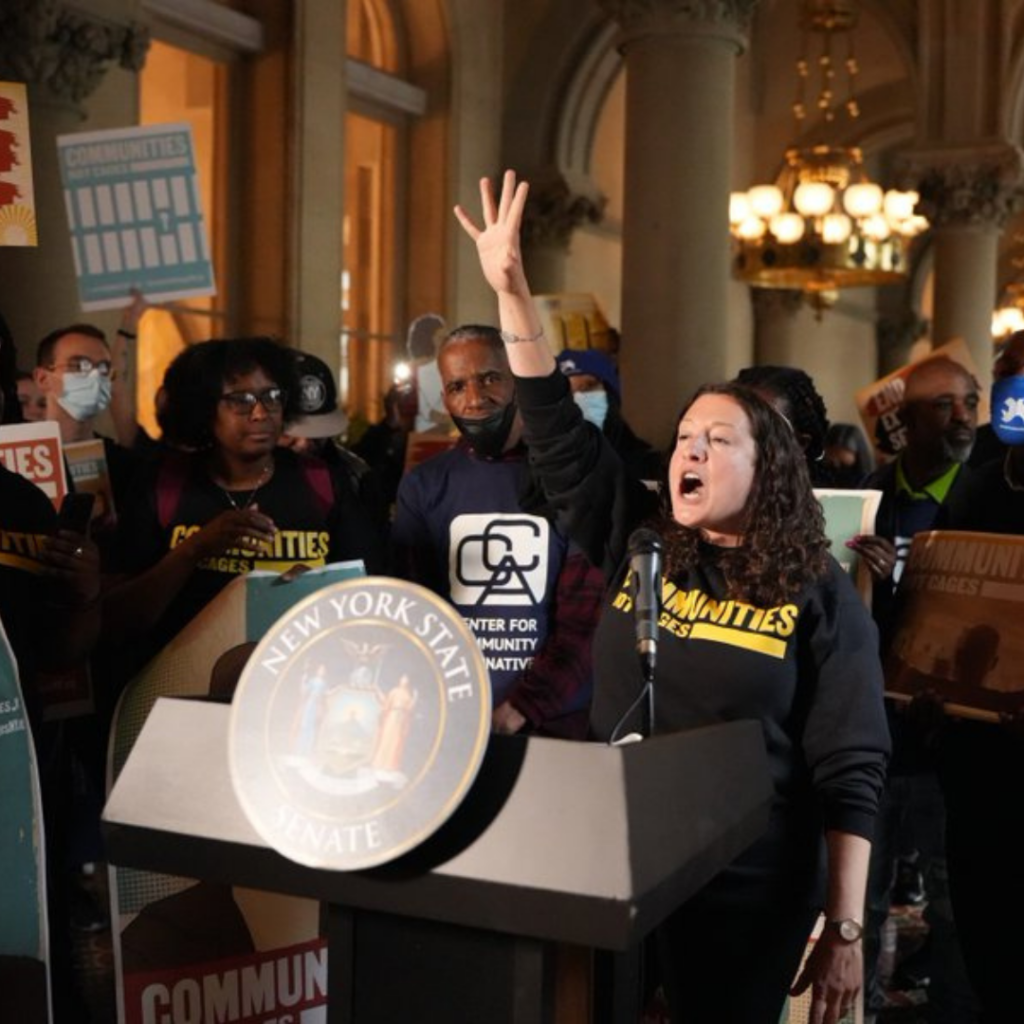
New York cluster members have organized with CIW to push Wendy’s to join the Fair Food Program; or supported the Laundry Workers Center’s Cabricanecos campaign for worker safety and the right to organize, and continued to press for the passage of a bill to end all solitary confinement in NYC jails and close Rikers Island. In November 2022, the T’ruah NYC cluster partnered with Jews For Racial & Economic Justice (JFREJ) to form Tirdof: New York Jewish Clergy for Justice, which is now made up of more than 75 local rabbis, cantors, and rabbinical students.
T’ruah’s Westchester cluster is a part of the #CommunitiesNotCages coalition, pushing for legislation to end New York State’s draconian sentencing laws. Local synagogues have taken part in the past two cohorts of T’ruah’s STEP program, deepening their skills and relationships in building coalitions based in equity.
The Massachusetts cluster of T’ruah chaverim is part of a coalition led by affected communities like Families for Justice as Healing and The National Council for Incarcerated and Formerly Incarcerated Women and Girls supporting the #NoNewWomensPrison campaign, with the goal of a five year moratorium on new prison and jail construction. Additionally, they are pushing that $50 million dollars slated for a new women’s prison should instead be invested into communities in the Commonwealth most affected by incarceration.
We have trained 300 rabbinical and cantorial students to be moral leaders through our year-long human rights program in Israel and our summer fellowship in the U.S.
Through our Rabbinical and Cantorial Student Summer Fellowship in Human Rights Leadership, hundreds of rabbinical and cantorial students, have learned to be leaders in their local communities, through a full-time summer program that includes interning at a human rights organization, learning Jewish texts, and developing the knowledge and skills they need to be moral leaders.
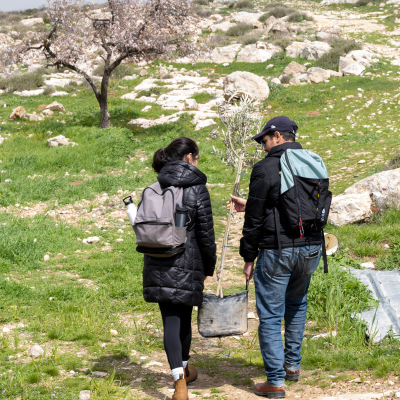
Every year, roughly 80% of rabbinical and cantorial students spending their required year in Israel participate in our human rights-based Year-in-Israel Program, which introduces them to human rights issues and leaders inside of Israel and in the occupied Palestinian territories. These students return home ready to lead their communities in working for human rights for all people in the region.
More than 225 rabbis and cantors have visited the West Bank and East Jerusalem and have brought their eyewitness accounts of the occupation, as well as of the human rights leaders on the ground, back to their communities.
Thanks to a 2016 T’ruah campaign asking Jewish National Fund-USA (JNF-USA) how much U.S. donor money ends up in settlements, JNF-USA began releasing a list of their projects, including information about how much money flows to settlements.
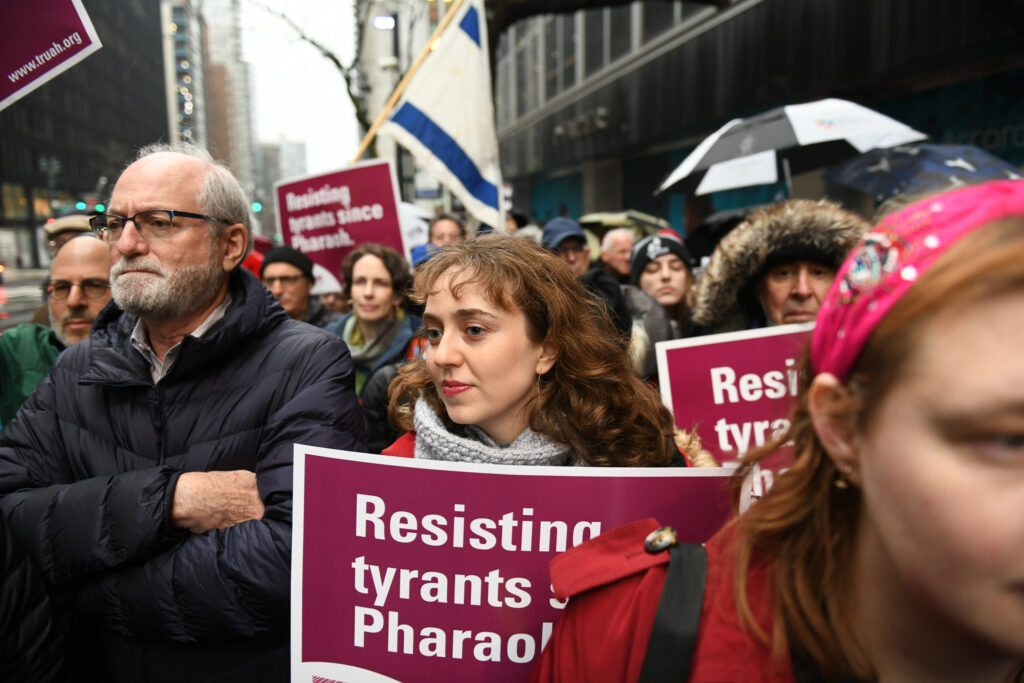
Following a complaint T’ruah filed with the IRS, Central Fund of Israel was forced to stop funding the Honenu organization until it committed to end its practice of making payments to Israelis convicted of terrorism. Itamar Ben Gvir, the leader of the extremist Otzmah Yehudit party, is the longtime lawyer for Honenu.
2,500 seders have used our human rights haggadah.
500 congregations have participated in Human Rights Shabbat.

